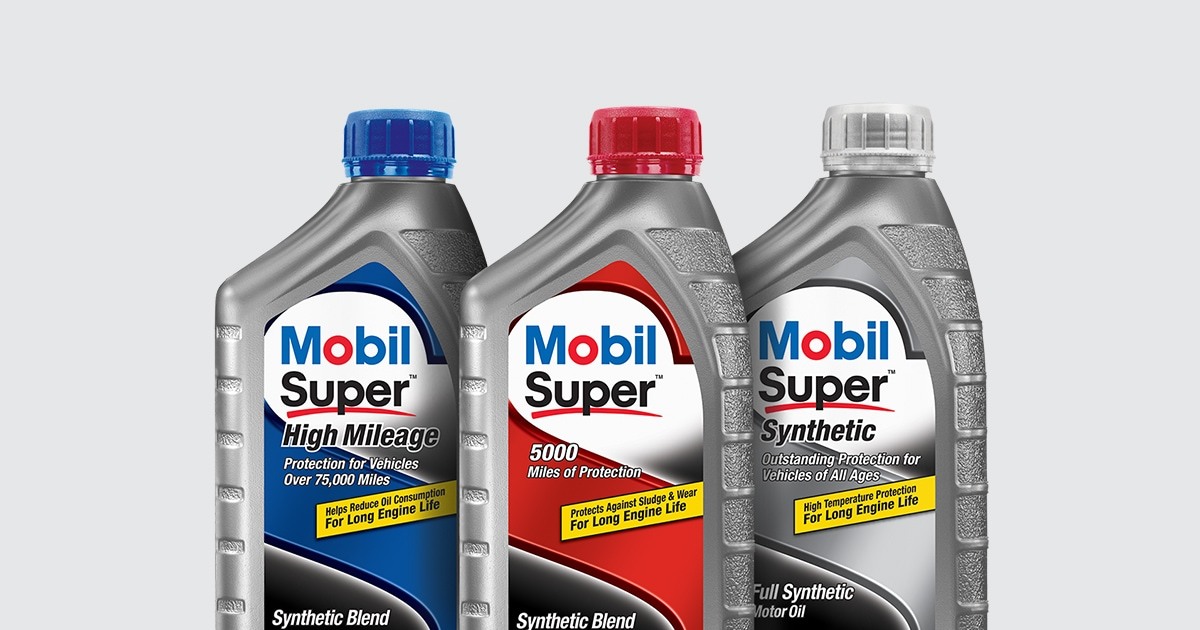That's a 1.8 Corolla for you! The '07 in my sig came from my brother, who brought it over for a full syn "stash raid" every 10K, or 15K, or whenever he felt like it! It's still going strong at over 170K, and other than a leaky front cover, has suffered no ill effects at all.Can it also be chance, luck and the vehicle itself. I like to use my sister 03 Corolla S as example and I’m sure there’s many other people with similar results. She sold the vehicle around 3 yrs ago the vehicle is still running with 300,000 on the clock. Used super tech or fram extra guard oil filters and for the longest I know my brother in law used castrol GTX or super tech 5w30 never seen synthetic in their 260k miles they had the car. Occasionally the vehicle seen a local independent shop so it had jobber filters and whatever bulk in a drum of 5w30. That’s really following the owners manual when it comes to oil recommendation.
You are using an out of date browser. It may not display this or other websites correctly.
You should upgrade or use an alternative browser.
You should upgrade or use an alternative browser.
Napa Proformer Oil Filter and M1 5w20
- Thread starter RAVL
- Start date
Understood but respectfully I never asked for advice on the BMW. I have owned that car since 1997 or 1998 and have overseen its maintenance and repairs since that time, or done them myself when time permits, together with about half a dozen other BMWs since the early 1990s. This includes a few endurance race cars that would regularly see high RPM operation. I am very comfortable sticking with the original, non-CAFE influenced oil viscosity recommendations in the owners manual. Again, with all due respect, if anyone saw the condition of the crank (when we have pulled the oil pan to fix the leaks that come with BMW ownership) or the valve train, you guys wouldn’t be questioning this approach either. Oil pressure is a critical component of engine longevity, and the engineers who originally specified the oils this motor runs on set the viscosity the way they did for a reason, with main bearing clearance and operating temp in the sump in mind. For this same reasoning, you won’t find me here asking if I should use a higher viscosity oil in a newer car like my Toyota or the Ram - if the engineers who built the car are frankly too stupid or dishonest to specify the correct oil viscosity (even accounting for the regulatory framework of CAFE and other requirements), then the answer is find a different manufacturer. All that said, anyone who wants to buy an M20, M30, or M60 powered vintage BMW and run 0w or 5w oil in it is welcome to do so - it is their car and their money. I am going to stick with what I have been doing as it works well and is in alignment with the advice of the people who built the car originally.
Have a good weekend.
Have a good weekend.
I agree with you, vehicle manufacturers have many hours and dollars into the design, research and development of an auto for what they may recommend to the consumer. the main topic of discussion here is always the consumer knowing more than the manufacturer when it comes to the oiling system of their vehicle. they'll follow all other maintenance recommendations on changing coolant, break fluid, spark plugs, transmission fluid etc but when it comes to oil change intervals or viscosity recommendations the manufacturer gotten that wrong. They believe the auto industry is deceitful and they're in the business of selling vehicles so they're short changing the consumer to have some catastrophic engine failure. "if that being said is true.. I buy a Toyota following their oil change intervals and use the recommended oil viscosity and my vehicle has an engine oiling related failure, would I be purchasing another Toyota? yes auto makers are in the business of selling a vehicle but to be deceitful on what oil to use and when to change it out I don't know if that much is true, it would only discourage the consumer from sticking with their product. and I get the entire "CAFE" thing.. its free govt money for the manufacturer look people do crazy things for free money like scanning their receipt purchases. if someone has that little trust in the auto industry they should be riding public transportation, a mule or horse and buggy. I just don't get some people they will trust a stranger on a web forum but make a $30,000+ vehicle purchase and not trust the manufacturer.Understood but respectfully I never asked for advice on the BMW. I have owned that car since 1997 or 1998 and have overseen its maintenance and repairs since that time, or done them myself when time permits, together with about half a dozen other BMWs since the early 1990s. This includes a few endurance race cars that would regularly see high RPM operation. I am very comfortable sticking with the original, non-CAFE influenced oil viscosity recommendations in the owners manual. Again, with all due respect, if anyone saw the condition of the crank (when we have pulled the oil pan to fix the leaks that come with BMW ownership) or the valve train, you guys wouldn’t be questioning this approach either. Oil pressure is a critical component of engine longevity, and the engineers who originally specified the oils this motor runs on set the viscosity the way they did for a reason, with main bearing clearance and operating temp in the sump in mind. For this same reasoning, you won’t find me here asking if I should use a higher viscosity oil in a newer car like my Toyota or the Ram - if the engineers who built the car are frankly too stupid or dishonest to specify the correct oil viscosity (even accounting for the regulatory framework of CAFE and other requirements), then the answer is find a different manufacturer. All that said, anyone who wants to buy an M20, M30, or M60 powered vintage BMW and run 0w or 5w oil in it is welcome to do so - it is their car and their money. I am going to stick with what I have been doing as it works well and is in alignment with the advice of the people who built the car originally.
Have a good weekend.
yes have a good weekend. thank you sir
Good oil and filter plus you trust the mechanic at a good price a win
To your original question. I've done all my oil changes to save cost's and it's paid well. Everything is purchased from WM including OEM filters. Oil changes are under $30 for each vehicle except the 4Runner which takes 6 quarts. It's a wash because the Van only takes 4. Then again I use cheaper, but "good enough", oil.if the engineers who built the car are frankly too stupid or dishonest to specify the correct oil viscosity (even accounting for the regulatory framework of CAFE and other requirements), then the answer is find a different manufacturer.
Engineers specify the best energy conserving (thinnest) oil that will provide the best fuel economy (most important) and get the engine to 100k miles (life of the vehicle).
0w, 5w, 10w, 15w and 20w have no bearing on engine wear as has been stated many, many times.
but respectfully I never asked for advice on the BMW.
It's a feature of this place. IMO many members are so insecure they must repeatedly share their "wisdom". If they don't really have any "wisdom" to answer the question asked, they just answer the one they want to. Try no to be mad, they are incapable of change.
FWIW

Mobil Super™ brand | Mobil™
Learn about Mobil Super™ synthetic and synthetic blend motor oils that contain cleaning additives to help keep engines clean and protect against sludge and engine wear.

Mobil 1™ brand | Mobil™
The Mobil 1 brand is world-renowned as an early innovator of synthetic motor oils, and that legacy continues to this day.
I guess im glad my dealer does just what I ask them to do if its at the mileage and needs done for warranty i just tell them to do it. I do get what you mean by the upsell though. My personal preference im not a fan of aftermarket filters. Its not the quality of them its how big of a pain in the ass is it to get them to cover repairs if their part caused damage that the manufacturer wont cover because it was an aftermarket part that caused it. OEM should be no questions asked if its a true OEM part from the dealer or other trusted source.Good morning. In an effort to control household costs and to get better service, I started taking my two trucks (a 2016 4Runner and a 2020 Ram 1500 5.7 etorque) to a well regarded local gas station/service center. The multifranchise dealer for both trucks was relentlessly upselling services not in the manual, and I found evidence that they were not being careful - for example they stripped the bolts on the TRD skid plate on my 4Runner and did not tell me.
The new shop uses Mobil One when a full synthetic oil change is requested. On the Toyota, it is 0w20, and for the Ram it is 5w20 super synthetic. They also use Napa as a supplier for filters. The work done on both trucks so far seems well done - I am a car guy and consider myself fairly knowledgeable - but I am concerned about the oil filters being used as I would typically use the filter from the dealer to avoid problems or cheap knockoffs. They are using Napa Profromers. But again both trucks run very quiet and smooth, no consumption or weird noises, etc. (The M1 super synthetic data sheet states that it meets or exceeds the Chrysler MS 6395 standard - I checked before allowing it to be used.)
Also, I change the oil in both trucks about every 5k-6k. This is typically while the oil life is about 40-something percent on the minder (Ram only; Toyota just tells you service due soon) and is conservative according to oil analysis but we do a lot of short trips running the kids here and there. I also note that on the Ram, within a few thousand miles of the dealer standard oil change you would get hemi tick very briefly at start up. With the full synthetic M1 SS, you don’t hear that tick, ever.
Question is whether I should supply my own filters next service or is that overkill when you are doing full synthetic changes every 5k-6k?
Thank you in advance. Hope to be a helpful member here.
- Joined
- Jul 22, 2022
- Messages
- 527
What kind of statement is that? Unbelievable...if the engineers who built the car are frankly too stupid or dishonest to specify the correct oil viscosity (even accounting for the regulatory framework of CAFE and other requirements), then the answer is find a different manufacturer.
Similar threads
- Replies
- 21
- Views
- 2K
- Replies
- 7
- Views
- 293
- Replies
- 40
- Views
- 3K
- Replies
- 37
- Views
- 1K

